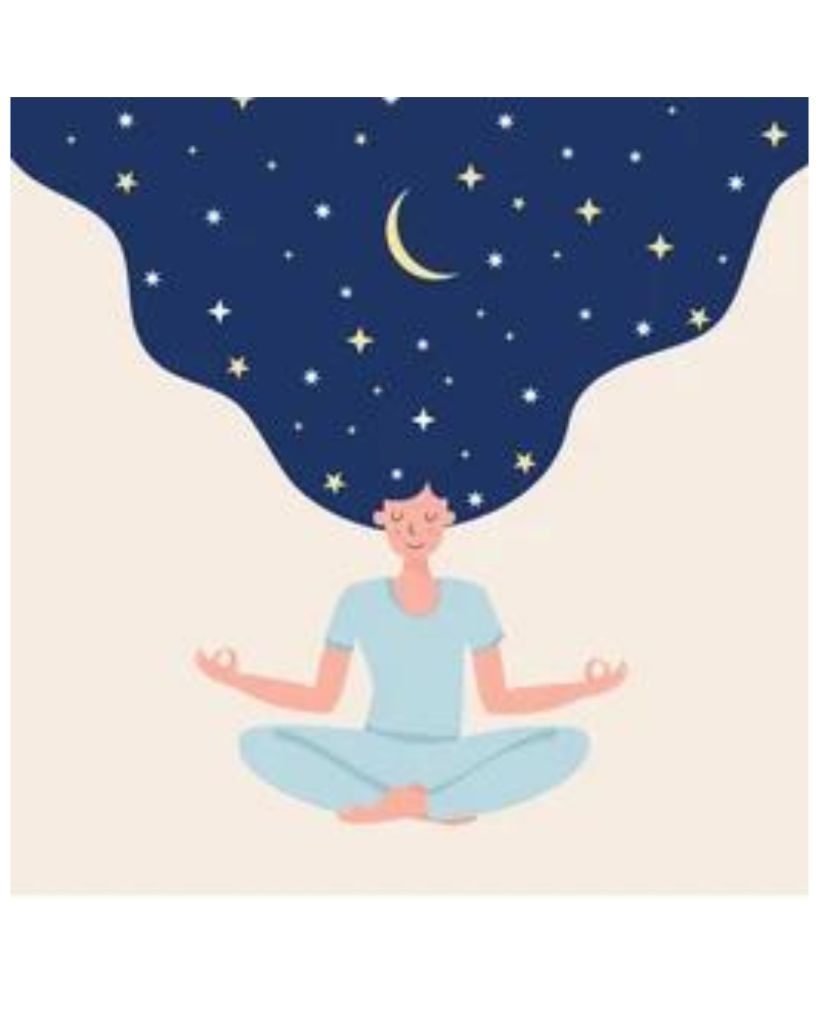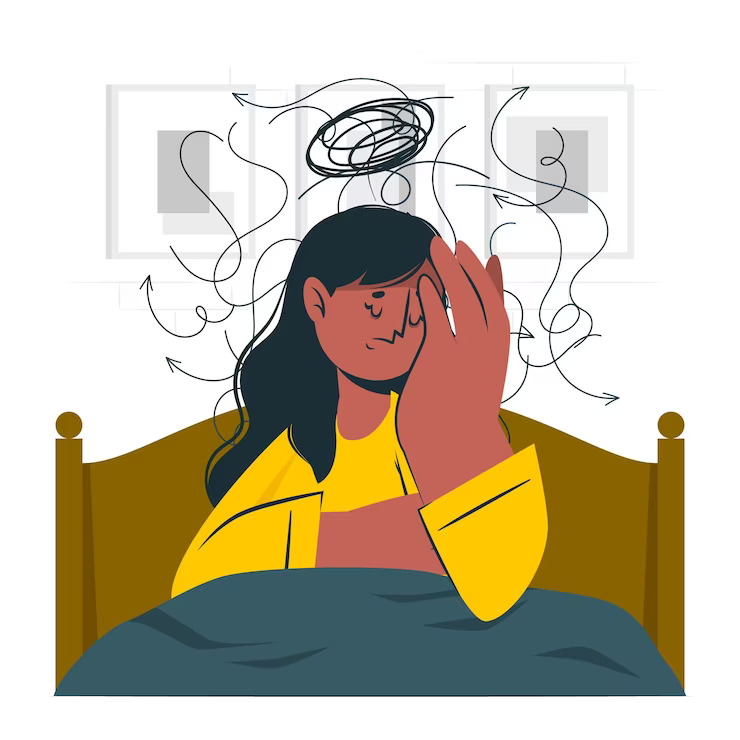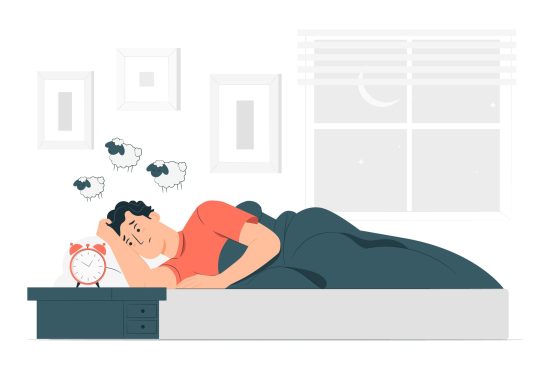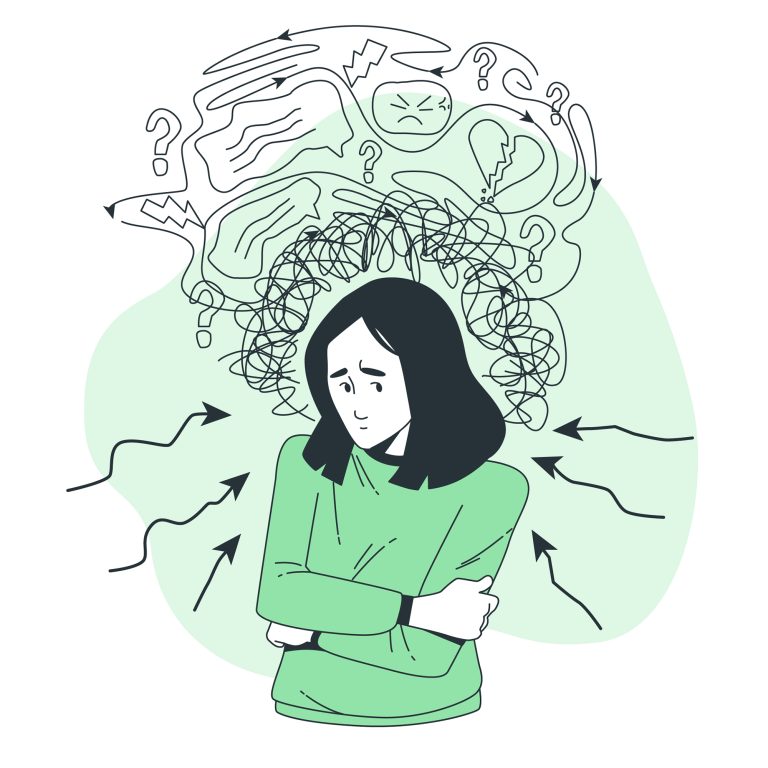
Since sleep is such an integral part of our well-being, let’s explore some of the reasons for ever growing sleep difficulties and how you can use mindfulness to sleep better.
A sleep disturbance is rarely ever a standalone problem. If you don’t get much sleep especially because you tend to start getting many many thoughts the moment you lie down in bed, then you are certainly not alone. In fact you have loads of company.
The reason why this tends to happen is hypervigilance.
Hypervigilance: Why we don’t feel rested

When you worry, your body is not at rest, it cannot be. It feels like it is facing a threat and it is preparing for that threat. The brain does not always understand with clarity the difference between real and imagined threat. It cannot allow you to sleep in the face of a threat (it is simply protecting you). Moreover if you are used to worrying, it also becomes a well rehearsed brain pattern and the vigilance becomes natural.
All of this affects you in the day time as well. But at night when you suddenly decide to switch off this brain activity, you realize your brain is still in the mode of preparing for threat and does not want to calm down and co-operate.
Here Is How You Can Use Mindfulness To Sleep Better
Here are some mindfulness practices and tips that can help you sleep better.
1. Foundations of a restful night begin in the day: How you live through your day and arrive at your night has a lot to do with how well you sleep. When you are constantly repeating plans, worrying about deadlines and rechecking things to do, you are getting excessively vigilant. Such an overwhelmed brain may find it difficult to settle down. Start being mindful during the day. Pay attention to the activities you are doing. Try to allow thoughts of future and worry to simply come and leave as you refocus on the present.
2. Prepare for the night: Lower the volume of your TV, dim the lights, and allow the gentle darkness of the night to sink into your system. Invite yourself to get slower as night approaches. Move slowly, eat less, and perhaps take a warm mindful bath. All of this gently signals the brain that it can let go of the inertia of a busy packed day and the worries of the next day.
3. Learn to like rest: This is a very important one. While most of us crave rest, few of us really like it. We fill up potential rest time surfing the internet, on social media,TV, playing on the phone – all of which are stimulating, not restful. Maybe I will elaborate on this in another post soon. But for now, try to ask yourself and your body what you really need at this moment – a different stimulation or rest. Even if you don’t feel like sleeping, simply close your eyes and focus on a few breaths. Sometimes if you are feeling very wound up, inhaling from your nose and exhaling gently from your mouth like a sigh may help too.
4. Say a prayer of gratitude to the universe: The idea behind this is not to make up or pretend to like your day even if it was tough. But maybe you can bring to mind anything at all that went well. Some tasty food, a smile exchange, or just that there is bed now on which you can rest. For a few moments, simply close your eyes and feel grateful for these.
5. Try not to worry about not getting sleep: Remember worrying makes you more vigilant and as a result, the brain refuses to switch off even more. Try and bring an attitude of acceptance to sleeplessness. This is what it is today. I feel sleepless now. Combine this with the next step.
6. Meditate lying down: Create an intention of just resting in the present, not necessarily of sleeping. Lie down flat on your back. Slowly start noticing each breath. Notice it entering the nostrils and going right within the body. Notice the beginning, the middle and the end of inhalation. Then notice the beginning, middle and end of exhalation. Slowly allow the breath to become soft going all through the body. Feel the entire body breathing slowly and gently with no expectation of sleep. Whether you get sleep or not you will definitely feel deeply rested.
As you start incorporating these mindful practices of sleeping into your schedule, slowly your tendency to worry and to be overly vigilant will go down. The brain will learn the new changes and sleep will improve.
Wish you a great and mindful ‘Get Better Sleep’ month!

Struggling with a good sleep can be stressful.
Get the support you need to live a happier, healthier life with our online Counseling services.
About the Author
This article was written by Counselors & Mindfulness Trainers at Inner Space.
Ask a Therapist
If you are interested to know about any mental health topics, ‘Ask A Therapist’ is a platform for you to ask your questions related to Mental Health, Mindfulness & Emotional Well-Being to our team of qualified Therapists.





